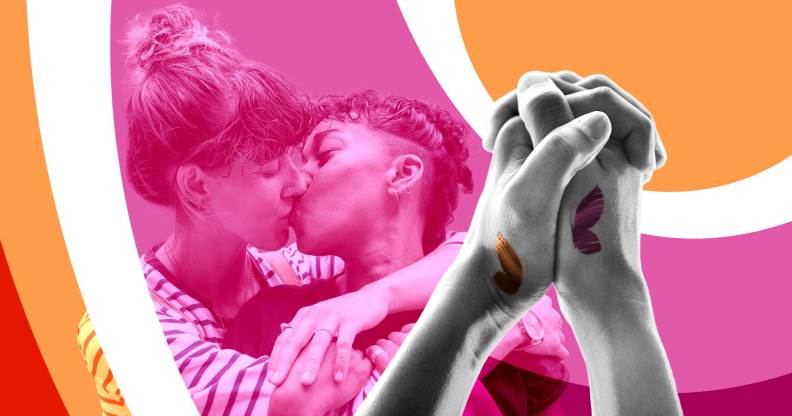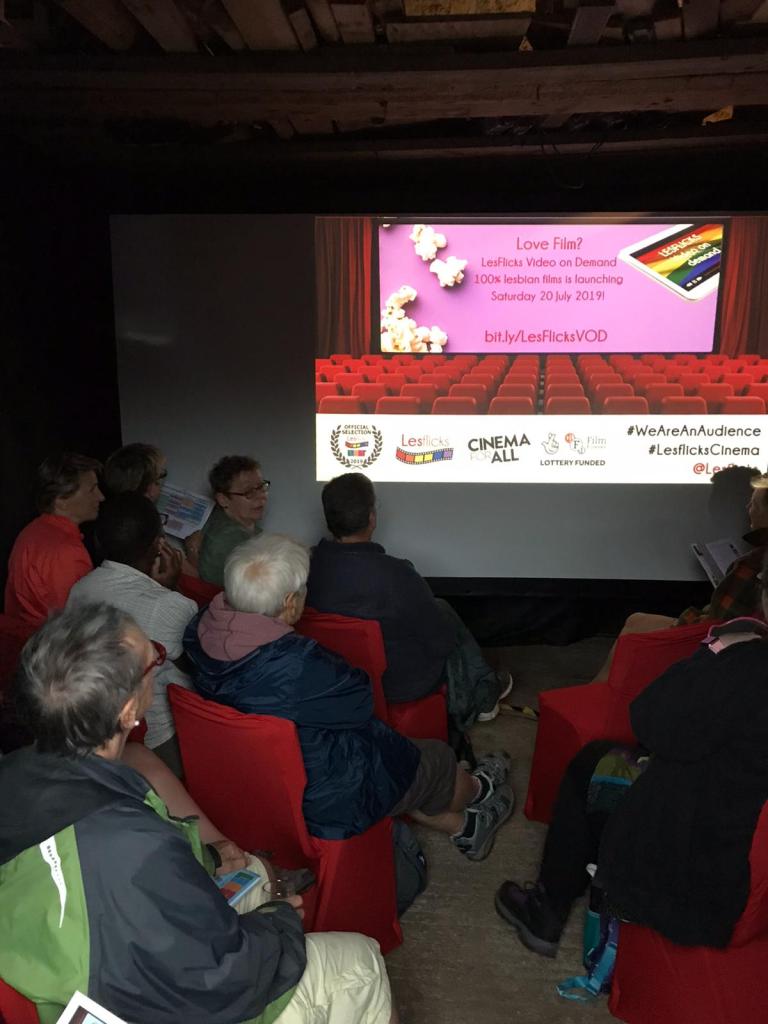The UK’s lesbian scene is quietly thriving: ‘It’s about the shared experience’

A handful of lesbian spaces, venues and groups are proving wrong the narrative that lesbians are being erased. (Getty)
A handful of lesbian spaces, venues and groups are proving wrong the narrative that lesbians are being erased. (Getty)
The UK is short on lesbian and queer women-only spaces – but those that do exist are thriving.
For lesbians, community spaces in the bricks and mortar sense can be hard to come by.
Research by the US-based Lesbian Bar Project has shown that more than 200 lesbian venues have shut since the 1980s, leaving just 20 across the entire US. In the UK, London has only one full-time venue dedicated to the lesbian community, with just a couple of other spaces specifically serving the needs of lesbians dotted around the UK.
It is undeniable there is a global decline in LGBTQ+ spaces. From gentrification and noise complaints to COVID-19 lockdowns and economic factors, queer venues including clubs, lounges, cabaret bars and performance spaces are under threat.
Some estimates place the loss of LGBTQ+ spaces during the last decade at more than 40 per cent in the United States, and nearly 60 per cent in just London alone.
Despite these waves of closures, SHE Soho has stood firm and prides itself on being the only dedicated space for lesbians in the capital.
Nestled amongst other notable LGBTQ+ clubs and bars on Old Compton Street, the space opened back in 2014 and has become a right of passage for any lesbian looking for a fun, safe night out in the city.
Tina Ledger, SHE Soho’s PR manager, tells PinkNews that going out can be a source of anxiety for many women.
“There has been a lot of conversations about women putting keys between their fingers for protection, and not walking with headphones in at night,” Ledger says.
“Queer women, in addition, have to sometimes navigate over-sexualisation, homophobia and transphobia.”
SHE Soho is a safe space away from all of this and is proudly trans-inclusive, opposing the rhetoric of groups like The Lesbian Project, which has called for trans-exclusionary “single-sex lesbian social spaces”.
“We do not agree with these women’s views, and our full support is with the trans community,” Ledger adds.
A rare, dedicated venue for queer women – though Ledger notes events and pop-up clubs, like the ever-popular Butch Please are on the rise – SHE Soho is aiming to combat a culture of LGBTQ+ spaces that are targeted at men and “not as considerate to the interests and needs of queer women, which are equally important”.
Historic Oxford LBGTQ+ pub just launched a women’s night
The Jolly Farmers in Oxford, one of the UK’s oldest LGBTQ+ venues, has historically fitted in with this assessment.
The pub, on Paradise Street, dates back to the 1600s but has been an LGBTQ+ establishment since 1982. But for decades it has predominantly served gay men, something the current custodians – who took over during the first lockdown – have tried to “break down” and as a result change the idea of “what the venue is”.
In March, the pub launched an all-new queer women’s night, LOVE.
For the nearly 400-year-old boozer, the response has been wholly positive, with the first night packed out. In the following days and weeks, women who had not come to the space before returned for more visits, feeling welcomed in a way they had not before.
“We really wanted to do something in a very vocal way that shows Oxford’s queer women that we care about making space for them,” says the pub’s Alana Stewart.
Of course, lesbian spaces do not have to be in-person. If the COVID-19 pandemic taught us anything, it’s that communities can flourish in a digital format.
Lesflicks streaming platform brings queer women together online
Naomi Bennett is the CEO and founder of Lesflicks, an independent platform which has the “largest collection of authentic sapphic stories of any online streaming platform in the world”.
Despite being a mainly online space, Lesflicks has hosted in-person film screenings across the UK and US, bringing lesbians and other queer women together to enjoy films fresh off the festival circuit.
Bennett explained: “We know that it’s not actually just about seeing the films, it’s also the shared experience. It’s about meeting other people in our community.
“Our community is socially isolated. We don’t have many spaces to come together that aren’t focused around loud music and alcohol. So, it is important to have those spaces.”

It’s important to make space for those who don’t drink – research shows that LGBTQ+ people are disproportionately impacted by alcoholism and alcohol dependency, while an increasing number are choosing to go alcohol-free for the physical and mental health benefits.
In Wolverhampton, the LesBiDo social group creates an opportunity for women to meet and chat over coffee and a biscuit.
The fact the meet-up is not alcohol or nightclub-based has been a positive for many, as most LGBTQ+ venues and events are less likely to cater to sober people, and the nearest LGBTQ+ scene to Wolverhampton is Birmingham’s booze-heavy Gay Village.
Sue Minett, a trustee of Wolverhampton LGBT+ since 2021 who co-founded the event, says: “A couple of other women have said since lockdown they haven’t really gone out very much.
“It is important, isn’t it, to get out and meet people. It’s important for your mental health, it’s important for your well being.
“I think it’s very important that people have got somewhere that they can go, they feel safe, and they can meet like minded people.”

